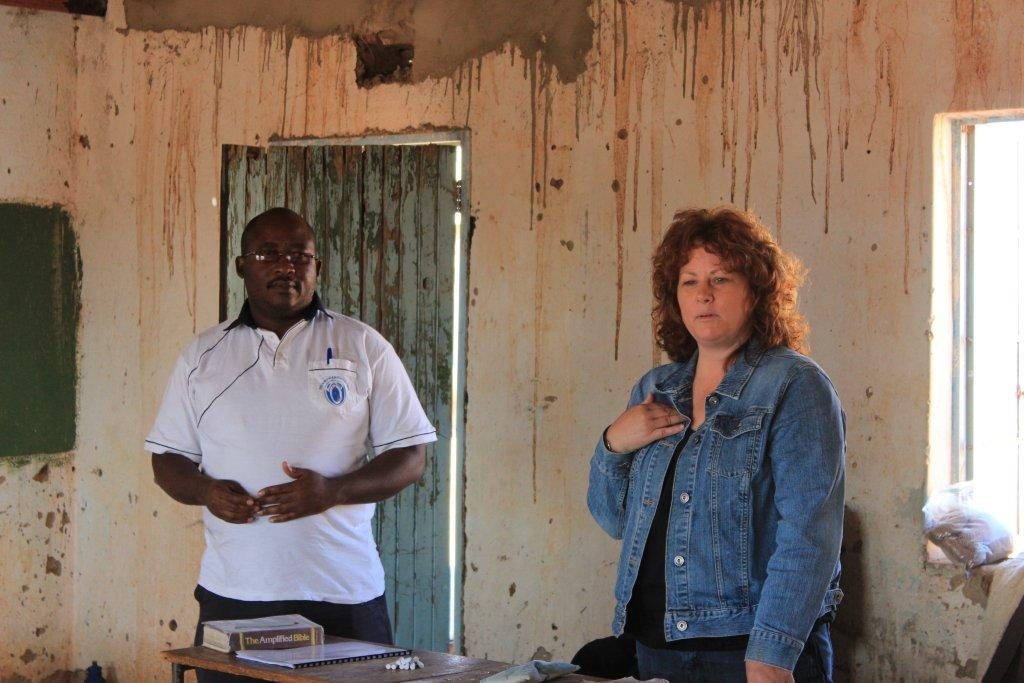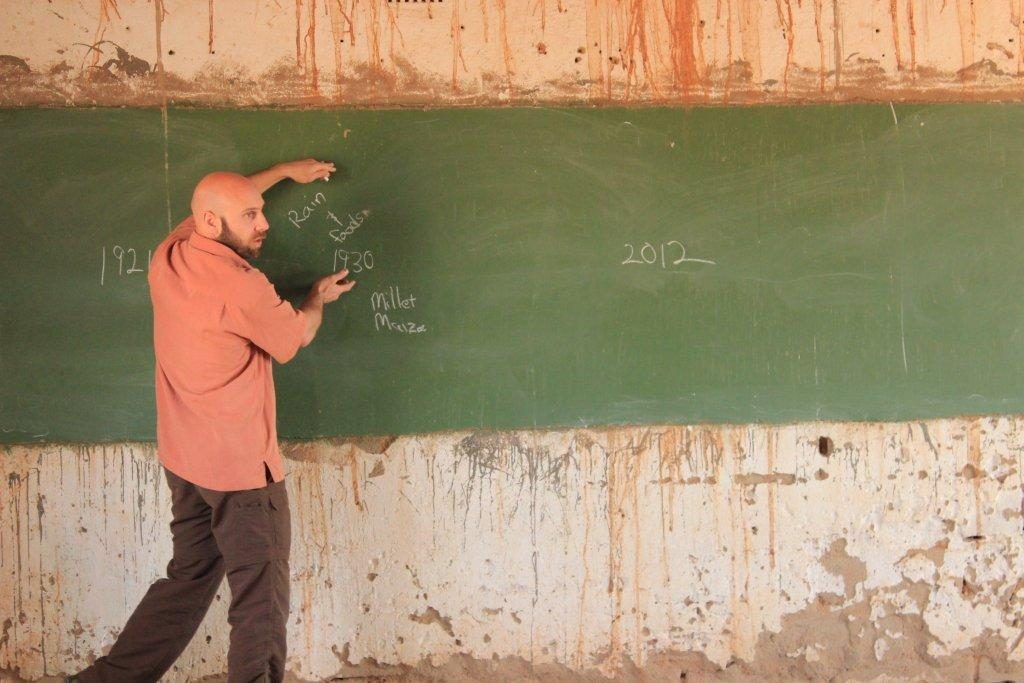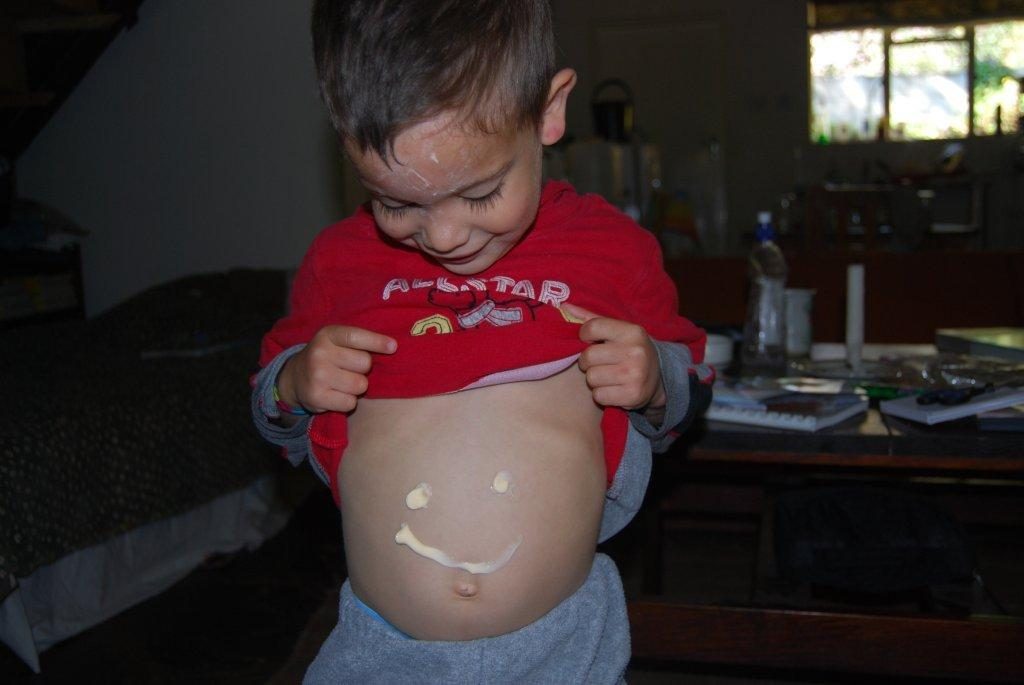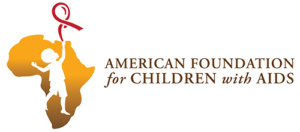June 21 – Mayezane, Zimbabwe
From Eric Weaver

Jodi Teaching with Q
Today Jodi, Q and I went to a workshop in Mayezane, Zimbabwe. Mayezane is located about 2 ½ hours outside of Bulawayo. A third of the trip was on paved roads but the remaining 2/3 was on sandy dirt roads through a very arid area looking much like Nevada or southern Texas. (It totally amazes me how Q was able to find this place.) We arrived at a small school house where about 200 kids attend school, some of them walking up to 10 km to get there.
This community, like many others in Zimbabwe, have been hit hard by drought and HIV. Many of the women in attendance are guardians of children how have been orphaned as the result of AIDS. The work shop today was on how to properly take care of goats. Jodi led this workshop for about 20 individuals, mostly women. She talked about warning signs that an animal is sick, checking goats for signs of parasites, as well as the many uses that a goat can be for a family, including the use of manure for fertilizer, milk, meat, and for some goats, the use of their wool to make yarn for rugs or clothing. The group was definitely interested in the what Jodi was saying, actively taking notes and asking good questions.

Eric and his timeline

Taking Notes
After Jodi had finished there was some extra time before lunch was served to the group and I did a small timeline with the community, looking at major events in the life of the community. The oldest individual that attended the workshop was born in Mayezane in 1921. Taking this as our starting point, we looked at what years were good years and what years there was drought and parasites or other challenges. Each of these time periods were marked on the chalk board. As these events were marked out, one could definitely notice a cycle which includes years of drought and good years (with more droughts in recent years). Using this information, we discussed how as a community they could grow stronger and be better prepared for the drought years. The community brought up the use of dams, drilling of boreholes so as to have a better water supply, better farming techniques such as conservation farming was also discussed. Dams would be a major expense, borehole wells are expensive but may be more affordable if the community comes together to pitch in, while a change of farming techniques would be low cost and very doable. Each of these alone do not provide a total solution, but the combination of a borehole and new farming principles would make a positive difference. The idea of this exercise was to recognize that there are cycles and that things are changing. The community as a whole and as individuals need to take steps to change and adapt so that they are less affected by the changing climate.
After a lunch of sadsza (a corn based thick porridge), a fried chicken leg and a little bit of green stuff we hit the road back to Bulawayo. On the way back we stopped at another village and were informed that AFCA chickens were on their way to be distributed (we thought they were coming next week). The chickens weren’t there yet so we continued on. We didn’t get more than a half hour down the road and when we saw a pickup truck coming down the road with a cage full of chickens on the back. We turned around and headed back to distribute them. There were 85 chickens to be distributed with each family receiving 5 chickens (4 hens and 1 rooster). The idea is that in a years time the family will give 5 offspring back to ZOE who will redistribute them to another family who are guardians of orphaned children due to HIV. These chickens will provide valuable protein through meat and eggs they produce.

We left the chicken distribution and headed back home arriving after 6. A long day but filled with joy of having been able to take part in the work of AFCA and ZOE as they seek to help those orphaned by AIDS.
From Tanya
The kids and I stay at home today, cleaning and preparing food, knowing we will loose electricity and water by noon. I crack down by nine in the morning and work furiously on my computer, cranking out letters to donors and writing updates for reports. I search for grant opportunities and try to connect with potential partners who might want to help us in our work here. Morgan is surprised at how much can get done when I am under pressure.
 The kids take a bunch of silly photos and then they, too, get serious and do some schoolwork. I am pretty strict with them keeping up with some reading and writing and math. Morgan is working on some algebra that boggles the mind. I sure hope she doesn’t need any help from me because, sadly, I am not able to do the stuff she is doing. I just pat her on the back and encourge her to keep going. Our host, Helene, said she can help if needed, so I am grateful for that.
The kids take a bunch of silly photos and then they, too, get serious and do some schoolwork. I am pretty strict with them keeping up with some reading and writing and math. Morgan is working on some algebra that boggles the mind. I sure hope she doesn’t need any help from me because, sadly, I am not able to do the stuff she is doing. I just pat her on the back and encourge her to keep going. Our host, Helene, said she can help if needed, so I am grateful for that.
After lunch, Morgan and I go downtown to check out the shops and to get our bearings. Helene takes us and introduces us to Mohammad (the pharmacist), Paddy (the green grocer), Shorty (the photocopy man), to the avocado man, the tangerine man, to Costs (the baker), and to a bunch of other people who all know and love her. It is a neat place, this Bulawayo!
The kids stay at home, playing with the Stambolie kids, having a blast. They find a red frog and chase each other with it, squealing and laughing. They run through the garden, get dirty and tired. By the time I get home, it is time to put them into the bathtub because they look like street urchins. Then, I try my hand at homemade tortillas, using mealiemeal, which is the only corn meal we can find here. They come out pretty good and we create a pseudo-mexian meal with the “tortillas”, beans and sausage I had cooked up before, grated cheese, greek yogurt (instead of sour cream), and home made guacamole from the avocados we purchased in town. We eat voraciously when Jodi and Eric return from their training and share with John and Helene. They rave about the mexican food and I laugh, telling them that it is more like a mexican dream, not the reality. They love it, though, so we leave it at that.

